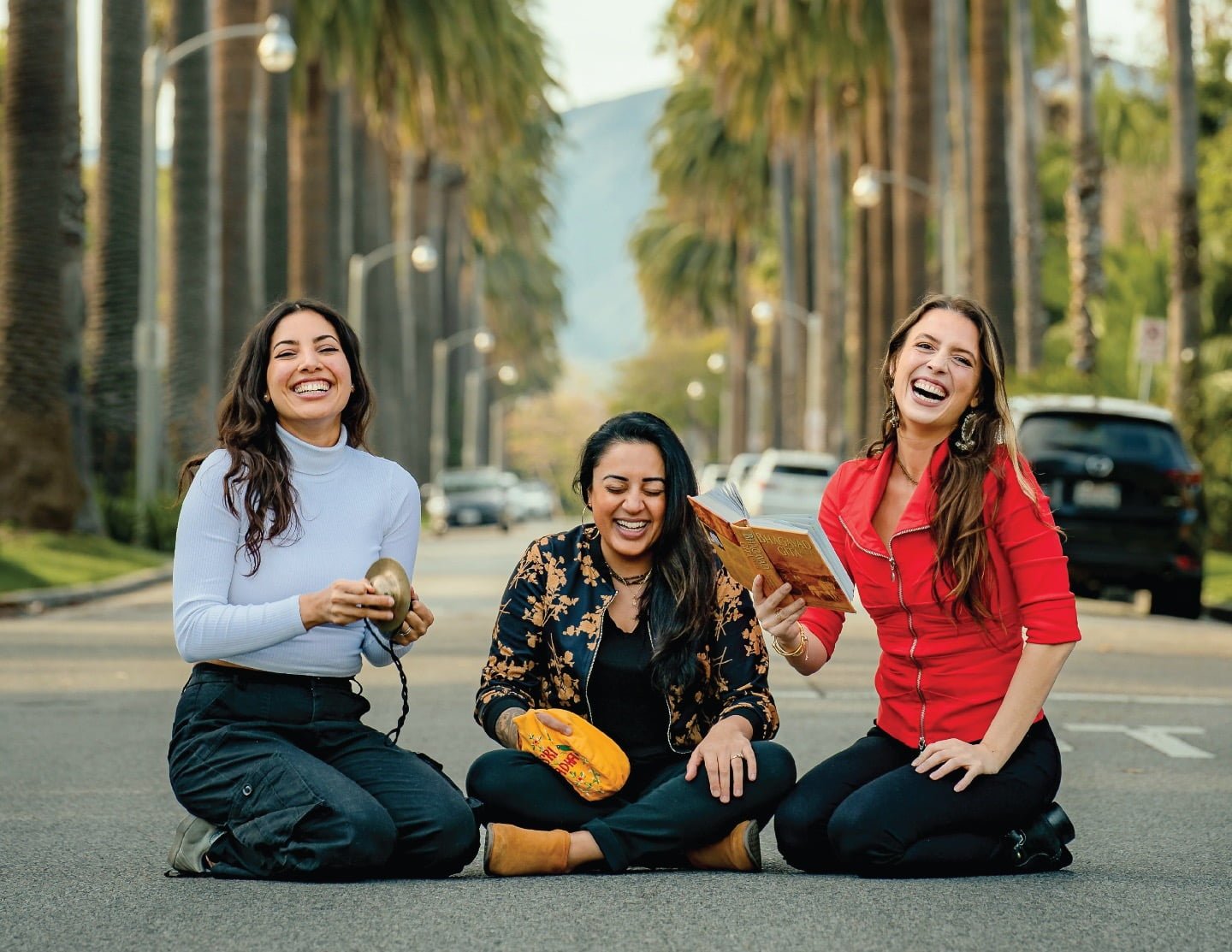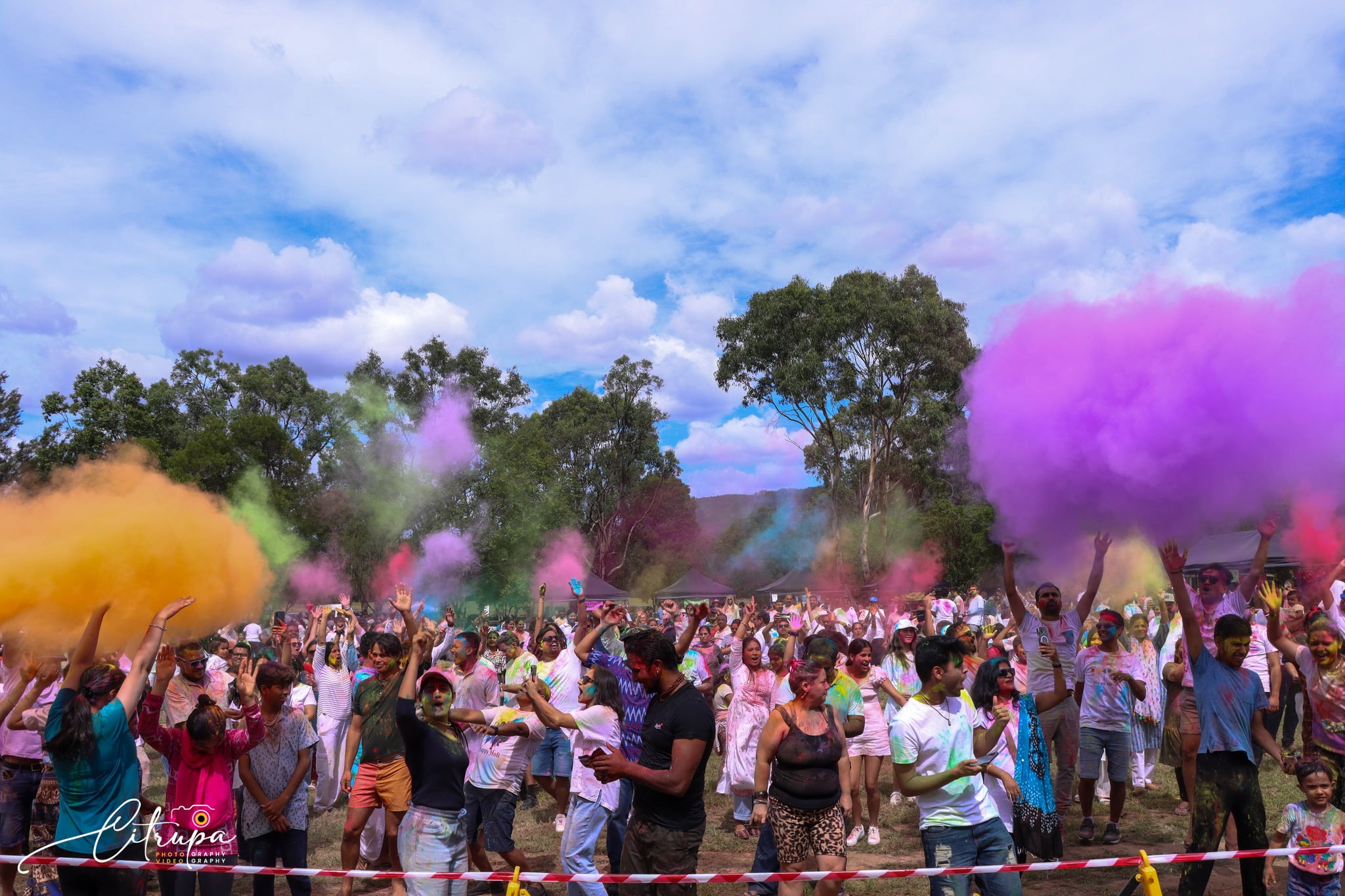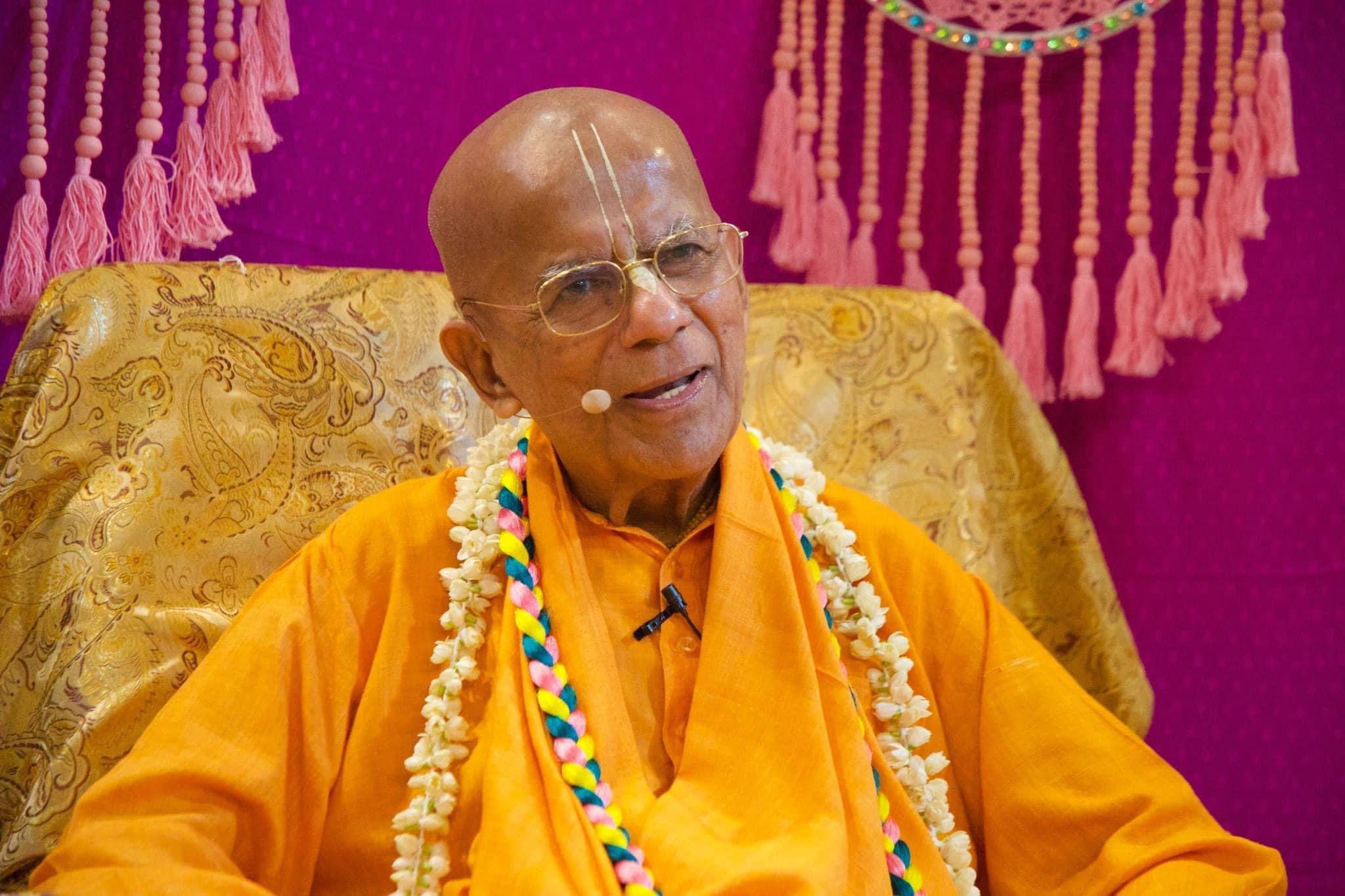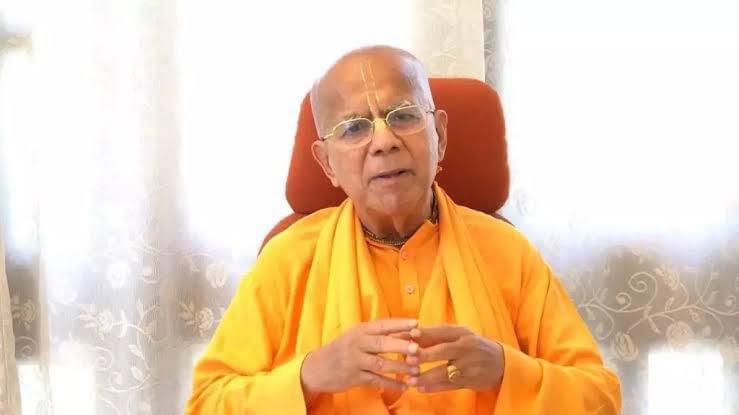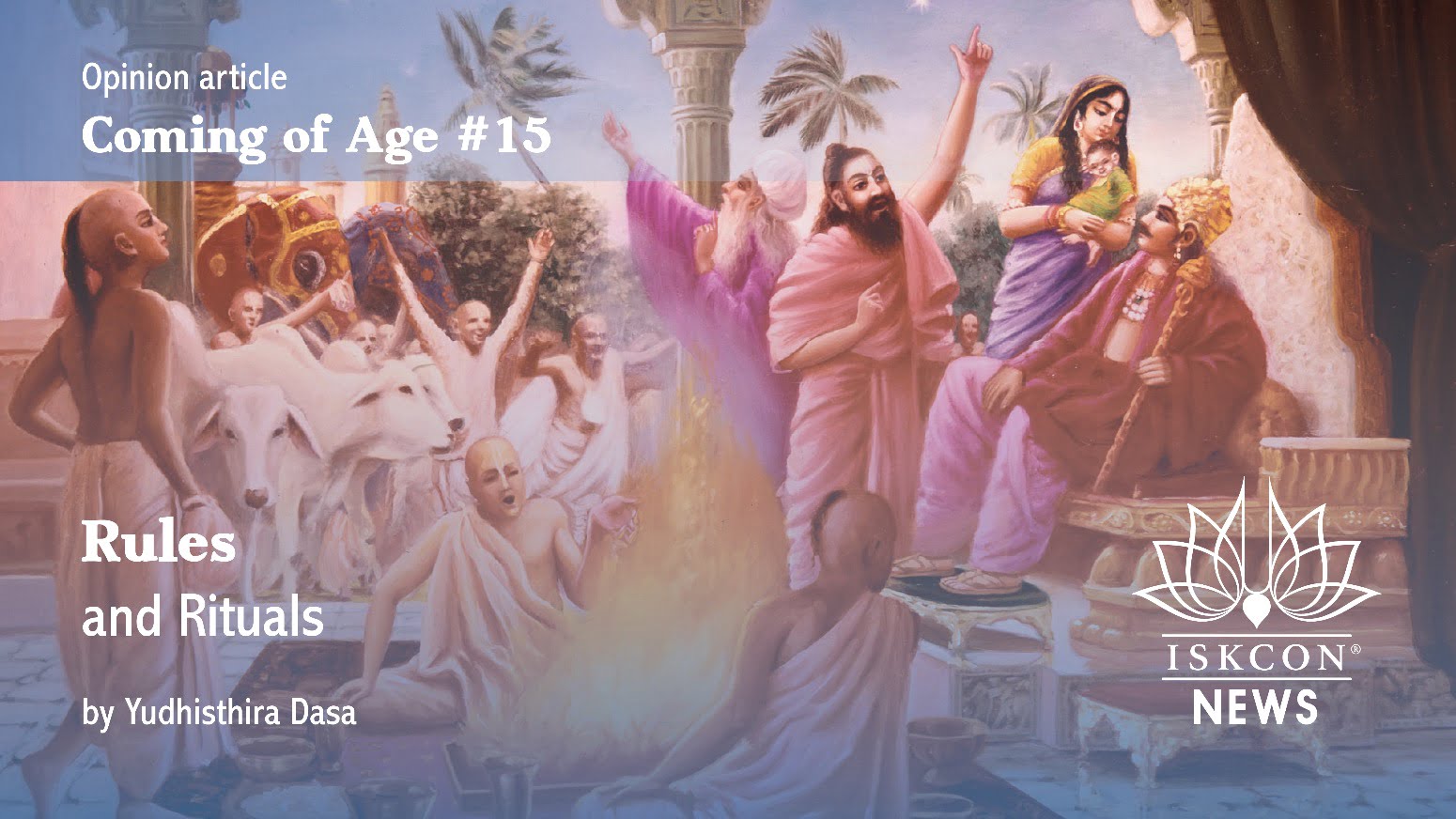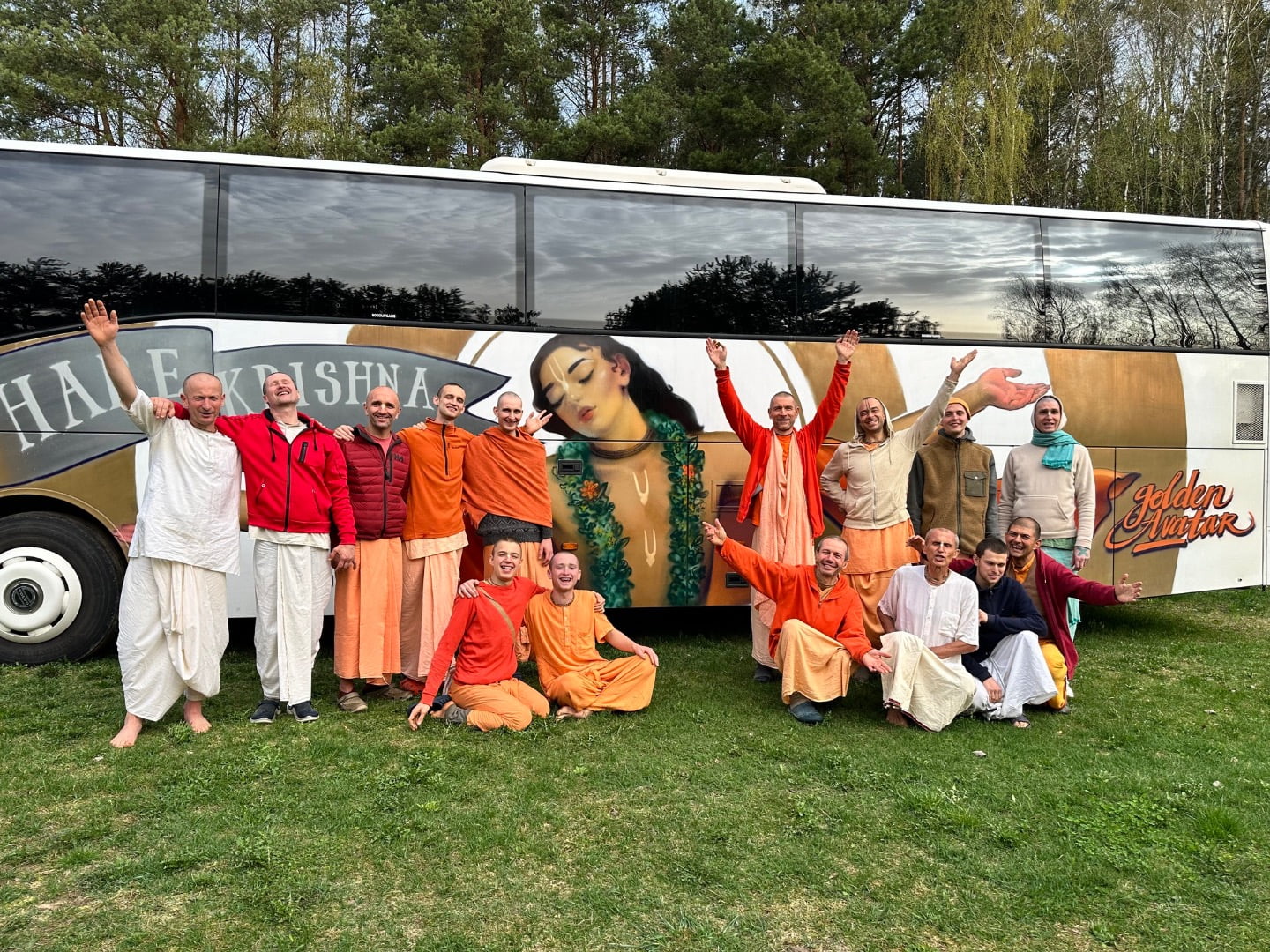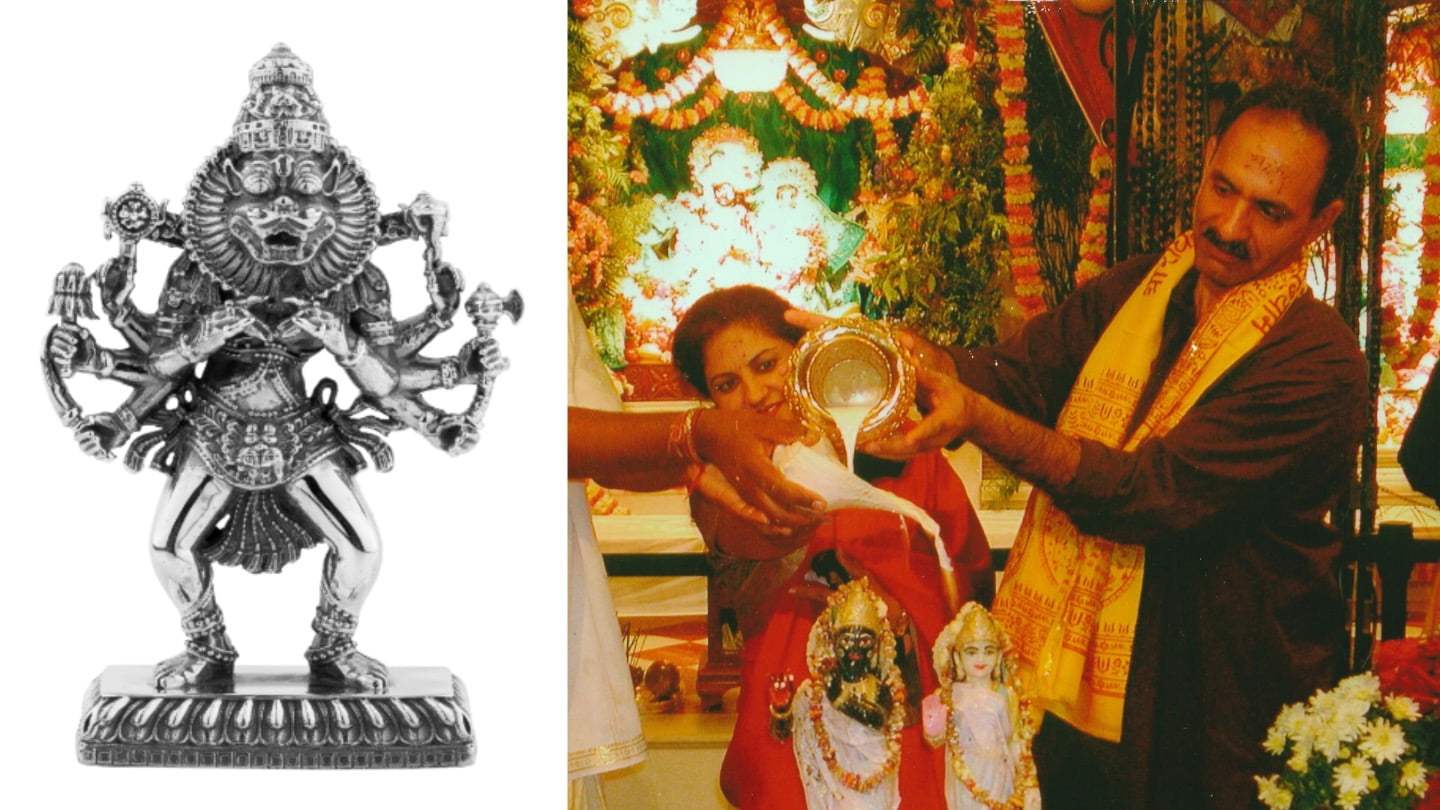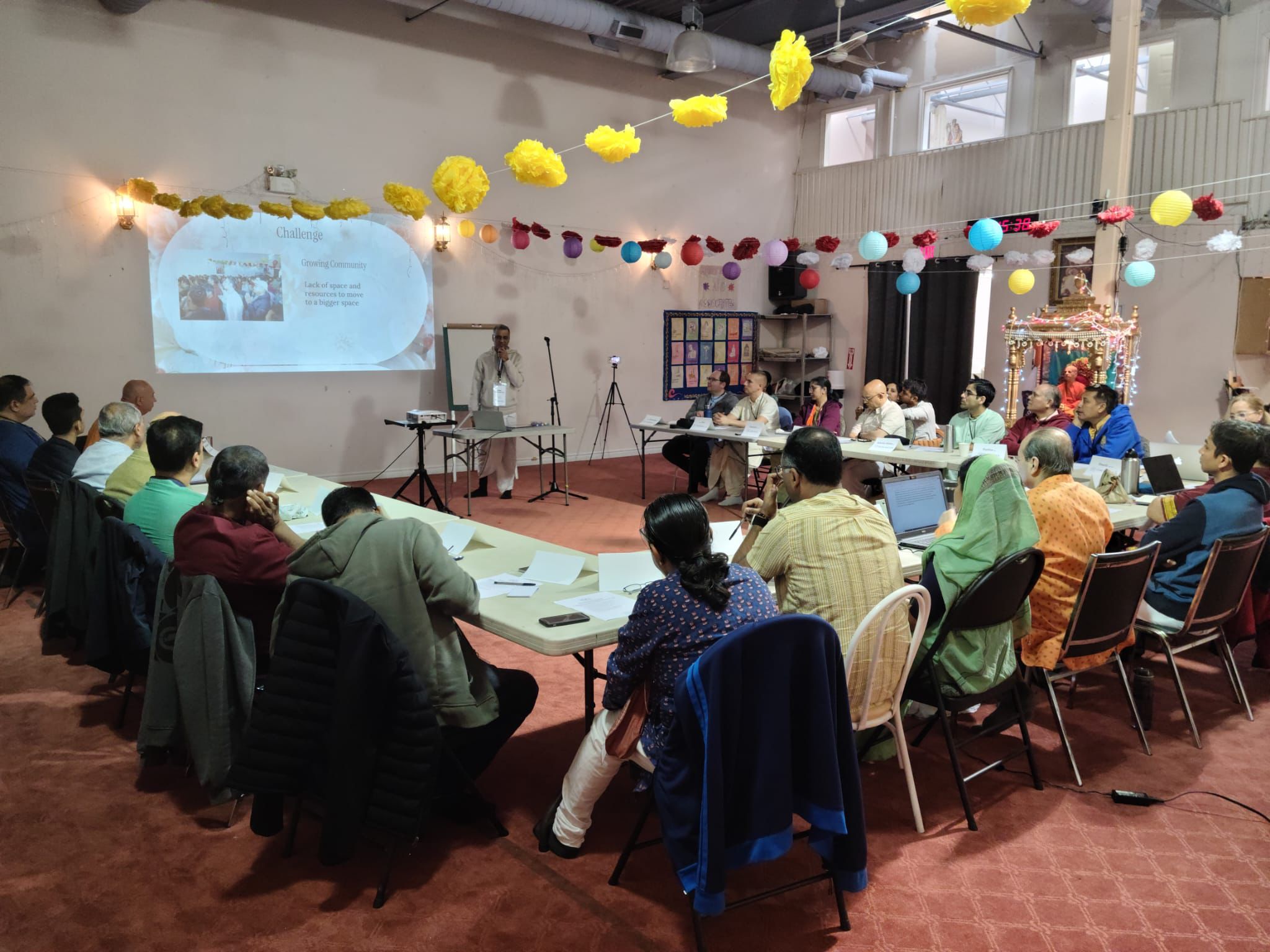Service is the Secret Behind Ukraine’s Bhakti Sangam Festival
By Madhava Smullen | Oct 04, 2012
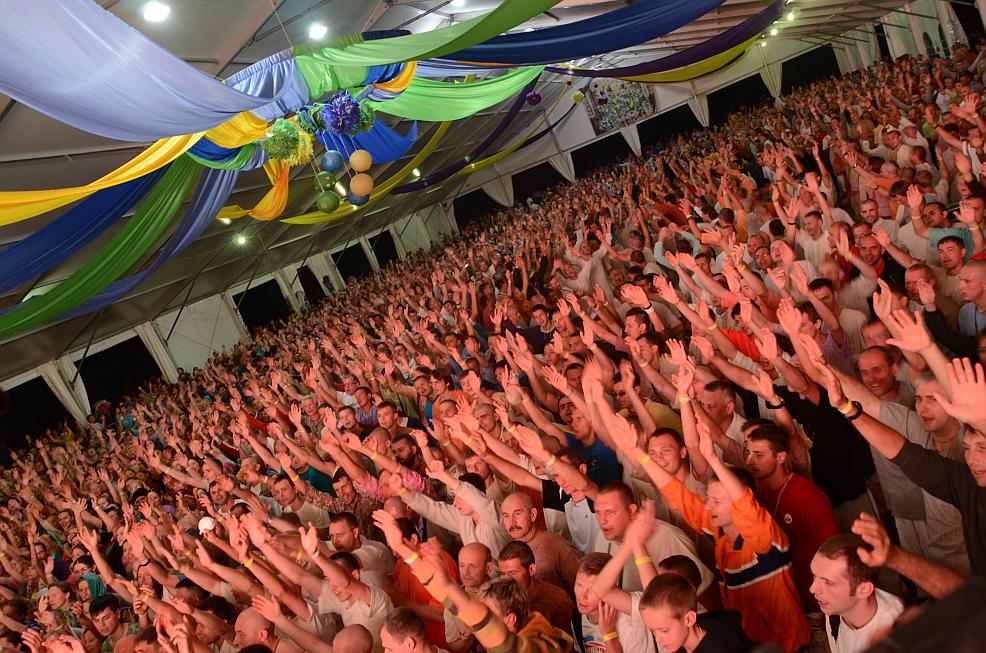
Thousands of devotees flooded into Evpatorya, a resort area near Ukraine’s Black Sea, for one of ISKCON’s largest festivals from September 17th to 21st this year.
Seventy-five per cent hailed from the Ukraine, where there are over 10,000 devotees. Others came from from neighboring countries such as Russia, Belarus, Lithuania, Moldova, Romania, and Bulgaria, as well as from far-flung locations like North American and Western Europe.
The festival, dubbed “Bhakti Sangam,” roughly translated as “A meeting place for devotees,” is nothing short of a phenomenon.
With ecstatic kirtans, edifying seminars from a bevy of international senior Vaishnavas, delicious prasadam and stellar Vaishnava association, it is the highlight of many devotees’ year.
The festival also has another secret element that makes it truly special: a universal spirit of service and cooperation.
But as with all great projects, Bhakti Sangam took some time to evolve.
Started in 1996 with an attendance of only 400, it was launched by Ukraine regional secretary Achyuta-priya Das and ISKCON guru Niranjana Swami.
“We wanted to provide inspiration, association and spiritual nourishment for Ukranian devotees, who couldn’t afford the steep ticket prices to the Mayapur festival in India every year,” Niranjana Swami says.

Still, attending devotees were charged a fee to cover the cost of the facilities, organization, food, and VIP speakers. Each paying attendee received a plastic wristband that allowed them access to seminars, kirtans and prasadam meals.
By 2002, festival attendance had climbed to 1,800. But while admission was cheaper than a plane ticket to India, the restrictive style of organization meant that many Ukranian devotees still couldn’t afford to attend.
The turning point came in 2008. While Niranjana Swami was walking to Mangala-arati, the day’s first congregational chanting, at 5:00am, he spotted devotees who couldn’t afford the festival fees stealthily trying to elude the Vaishnava security guards and join the kirtan.
Their sincere determination to rise so early and attend the predawn chanting moved Niranjana Swami deeply, causing him to rethink the festival’s structure.
“Somehow, it didn’t sit right with me that we were refusing devotees from participating in Mangala-arati,” he says. “We did away with the festival fees, relying on voluntary donations and asking attendees to pay only for their accommodation. To reduce the overhead, all the festival’s hardworking staff stopped taking any compensation for their efforts. And all the senior devotees speaking at the event volunteered to cover their own travel expenses.”
With this new mood of selfless service, the festival became sweeter, and attendance grew steadily with each passing year.

This year’s event was the largest yet, with five resorts booked for accommodations and a 21,500-square-foot tent that was always packed.
“It’s huge,” Niranjana Swami grins. “It’s like an airplane hangar.”
Meanwhile devotees from a different ISKCON community volunteered in the kitchen each day, serving up three meals of opulent prasadam and 20,000 bread rolls per day.
Every day of the festival began at 5:00am with a traditional temple morning program consisting of congregational chanting, private meditation and a spiritual discourse on the Srimad-Bhagavatam.
After breakfast, attendees had a choice of no less than twenty-three spiritual seminars by the crème de la crème of educated, insightful and thought-provoking ISKCON speakers.
There were four seminar time slots every day: two consecutive one and a half-hour sessions in the morning, from 11:00am to 2:00pm; and two in the afternoon, from 4:00pm to 7:00pm.
Seminars included Indradyumna Swami’s “One Hundred Questions”; Sivarama Swami’s “Holy Places of Vrindavan”; and Prahladananda Swami’s “Feeling Separation: The Role of Lord Chaitanya Mahaprabhu in the Hare Krishna movement.”
Other devotees delved deep into rare and beautiful Vaishnava devotional texts. Bhaktivaibhava Swami discussed Srila Bhaktivinode Thakur’s Jaiva Dharma; Bhakti Bringa Govinda Swami took devotees on a journey through Srila Sanatan Goswami’s Brihad Bhagavatamritam; and Bhanu Swami elaborated on Bhaktivinode Thakur’s Sri Harinam-Chintamani.
Meanwhile a series of practical workshops included Dhirashanta Das’s Japa Workshop; Vijay Das on the Art of Book Distribution; Jaya Shila Das on Children in Krsna consciousness; and Devaki Dasi on Death: The Last Test.

Finally, Yadubara Das of ISKCON Cinema entertained the crowd with stories and unique photos of ISKCON founder Srila Prabhupada.
“The biggest challenge was deciding which seminars to attend!” says festivalgoer Vrindavana Vinodini Dasi. “For every single seminar slot there were five to six different speakers conducting seminars simultaneously in different venues.”
As if this were not enough, a 24-hour kirtan tent was available for devotees who wanted to absorb themselves in the Holy Names at any time of day or night.
What’s more, from 7:00pm until 10:00pm nightly, everyone gathered in the massive main tent for ecstatic kirtans led by Indradyumna Swami, BB Govinda Swami, Sivarama Swami, Niranjana Swami, Madhava Das and many more of ISKCON’s best.
Each singer brought their own distinct flavor, with everything from Aindra-infused melodies, sweet lullabies, and salsa-inspired tunes to heart-pounding, rip roaring kirtans flooding the tent.
“Hands outstretched to the skies, heads back in bliss, eyes closed and voices melodiously raised in song, thousands of devotees chanted along,” says Vrindavana Vinodini. “It felt like the Holy Names were surrounding everyone in their tight embrace. The powerful combination of bhakti and the voices of thousands of devotees made it feel as though everyone in the world could hear the chanting of Hare Krishna.”
Bhakti Sangam is set up in such a way as to completely absorb attendees in chanting and hearing about Krishna. But that’s not all that makes it such a rare gem.

“Devotees come with a strong desire not only to hear and chant, but to serve each other,” says Niranjana Swami. “And it’s that spirit of service that really overwhelms me and predominates the festival.”
Moving, inspirational examples of this service attitude can be seen everywhere at Bhakti Sangam. Niranjana Swami recalls how one day, he went into the kitchen where one devotee was cleaning out a whole room piled high with prasadam serving buckets.
Patting the devotee on the back and thanking him, Niranjana Swami asked if the devotee had encountered any difficulties in his service.
“Yes, there is one problem,” the devotee replied. “Unfortunately, they are only letting me do this service for one day.”
Niranjana Swami also retells a story that Divya Dasi, who attends the festival every year, shared with him.
“When Divya finished prasadam one day, she told one of the devotees whose service it was to wash everyone’s plates that she wanted to wash her own,” he says.
“Although the devotee begged, ‘Please, let me do it,’ Divya insisted, ‘No, I can’t let you.’ Suddenly, to Divya’s surprise, the girl broke down in tears. ‘You don’t understand,’ she sobbed. ‘I’ve been waiting a whole year to do this.’”

Similarly, organizers also go above and beyond to serve the festival attendees. Since many Ukranian devotees face financial hardships, it’s difficult for them to afford even the most simple devotional paraphernalia. In response, Bhakti Sangam organizers purchase and ship from India dhotis, saris, chaddars, kurtas, and deity worship equipment for them.
“Last year, one devotee cried in gratitude at the opportunity to get a sari, saying she had been wanting one for fifteen years, and had never been able to get one,” says Niranjana Swami.
In fact, Ukranian devotees’ attitude to the whole festival is one of deep gratitude. It means so much to them that as soon as one year’s festival is over, they begin planning how they can take the whole week off of work the following year for their spiritual vacation.
“Every devotee needs nourishment,” Niranjana Swami says, commenting on why Bhakti Sangam is such an important event. “And this festival recharges them and helps them to realize the importance of immersing themselves in Krishna consciousness. Not only once a year, but throughout the rest of their daily lives.”





